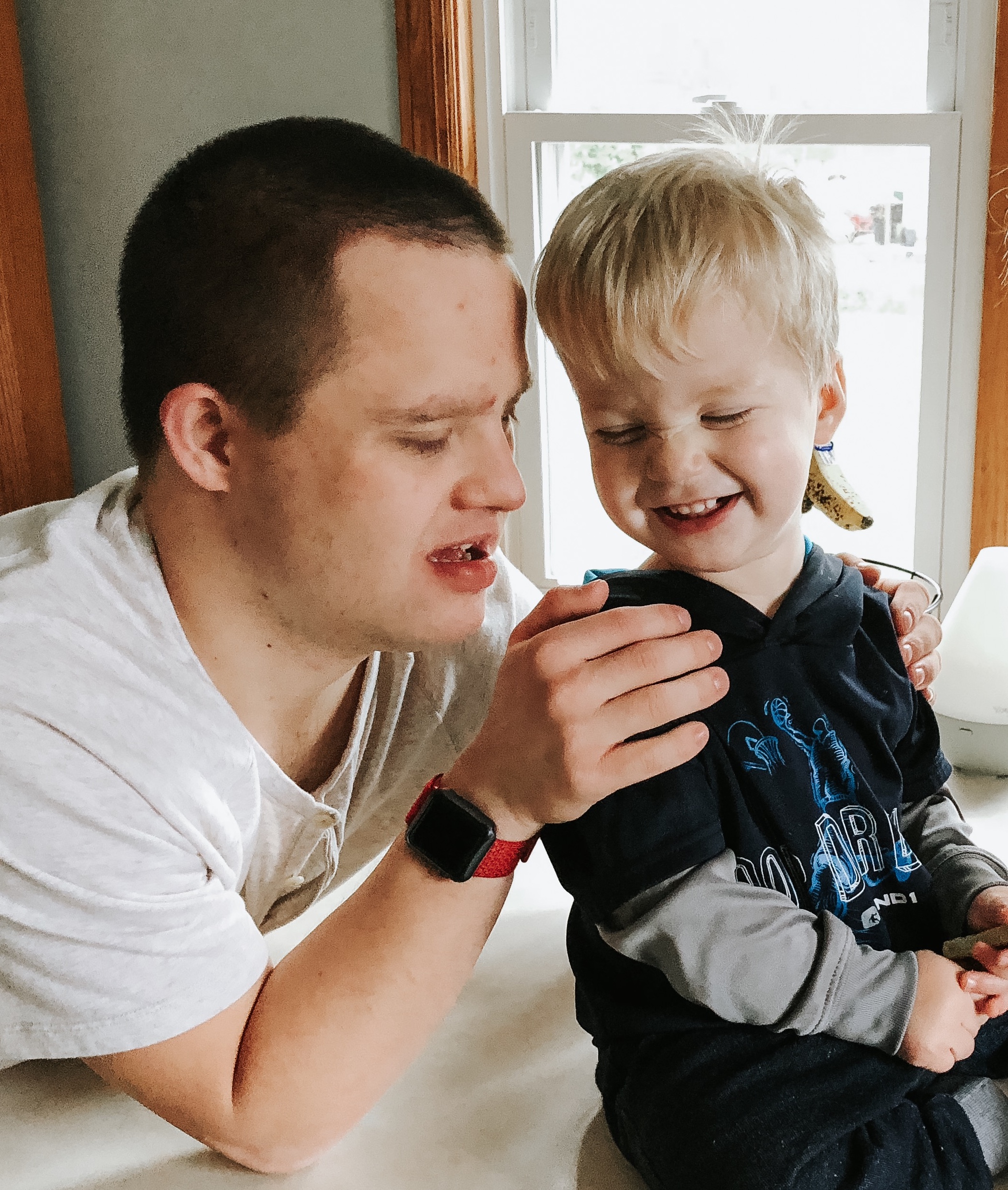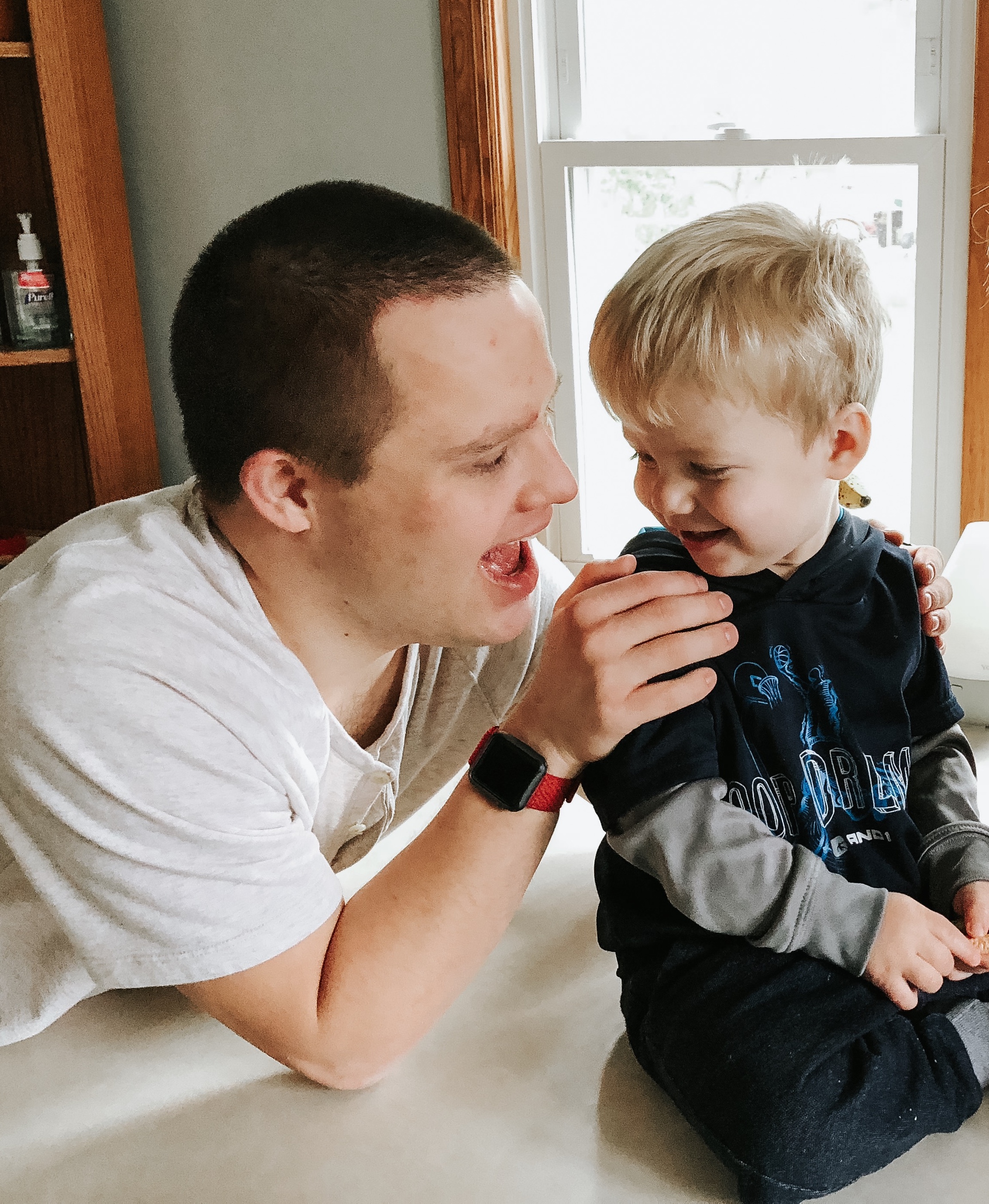3 Ways to Help Your Child Learn About Inclusion and Differences
In conversations with families of typically developing children, I have heard this question echoed all too often: “But how do I teach my child about differences? How do I prepare my child to be inclusive?”
As a sister of a younger brother with Down syndrome, a mother, and a Special Educator, I see the answer to this question playing out in my day-to-day life. My son has a remarkable relationship with my younger brother, his uncle. They are an inseparable pair. As my son grows up, I recognize that he has been given a profoundly beautiful gift to never have lived a day without his Uncle Matt. My brother has been in his life from day one.
It is an honor to raise my son to be intentionally involved in the lives of those who don’t look and learn the same way he does. My son has an uncle, a cousin and will one day have a brother with Down syndrome. Unified Sports is his normal weekday night. His parents’ jobs both include talk of IEPs, “I can” statements, growth mindset and inclusion. All of this is setting him up to be a friend. One who sees difference and celebrates it. One who invites not in spite of, but because of. One who searches for the other that isn’t often sought after and loves them. One who uses his privilege and voice to speak for those who don’t have a voice. This world of inclusion, this world of differences, is his normal.
I am not saying this needs to be your normal, but I am urging you to invite opportunities for inclusive experiences within your family. I am urging you to be a family that chooses to participate in the celebration of people different from, but so much the same as you. Taking these steps toward teaching differences and pursuing inclusion is important for everyone.

I would like to offer three tangible steps to sharing the importance of inclusion with your children:
1. Modeling. The single greatest teacher in a child’s life is their parent. If you’re doing it, so will they. If your life and platform prioritize inclusion, friendship and opportunity for all, your child will be familiar with these values and is likely to naturally engage in these practices. Maybe this is a call for you to step outside of your comfort zone? Befriend someone with a disability. Sit next to someone new at church on Sundays. Provide respite for a parent whose child has different needs. Make conversation around disability a regular discourse in your home. Say “hi.” If not for any other reason — do it for your kids. And know: you will be blessed as well.
2. Opportunity. No parent, no teacher, nobody can adequately teach differences like differences can teach. The best way to learn about differences and the importance of inclusion is to be immersed in environments where not every individual looks and learns the same way. A few places to begin include sending your child to a school where inclusion is prioritized, encouraging your child’s participation in Unified sports and other activities that welcome people of all abilities, and engaging in community, church or family functions that represent people with a variety of needs and abilities.
3. Honesty. Kids have questions — answer them. When someone looks or acts differently than they are used to, children grow curious. This is entirely fair; they are making sense of the world. Denying them an answer for the sake of your own, or another’s, perceived comfort is denying your child an opportunity to learn and grow their understanding of humanity. If you don’t know or aren’t comfortable fielding their questions, ask someone who can. Asking questions is not rude; ignoring another individual or assuming things about them is. Parents, siblings and the individuals themselves are often eager to educate, because awareness is the first step to change. When we understand, we are more likely to extend a hand of friendship, or at the very least, a bit of extra compassion and grace.
I believe these three simple but profound practices will transform your child’s journey into being the accepting, inclusive and compassionate individual we all hope our children will be. Don’t shy away from opportunities to be uncomfortable for the sake of growth and connection with another human being. Let yourself be rocked by the beauty found in differences and the magic that takes place when we all come together — when we all belong.


